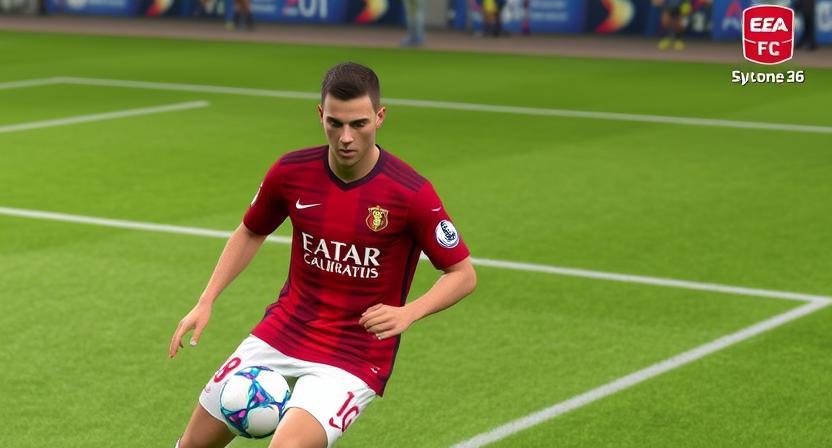The ongoing debate surrounding EA Sports FC’s monetization strategy resurfaces with each annual release, with particular focus on the Ultimate Team Season Pass. This system, common in modern gaming, is often criticized within the FC community for being overly aggressive and leaning toward predatory design. Many players argue that it prioritizes revenue generation over genuine reward for engagement, creating pressure points that encourage spending. This sentiment is reinforced by the perception that success in Ultimate Team is heavily influenced by financial investment rather than skill or dedication, making it one of the most demanding and unrewarding battle pass systems in the industry. For players seeking competitive progress, some even turn to resources like FC 26 Coins to bridge the gap more quickly.
At first glance, the Season Pass appears to offer choice through its dual-track system: a free tier available to everyone and a premium tier unlocked by purchase. However, the disparity in reward quality between these tracks is a major source of frustration. The free tier often contains rewards that have little to no impact on gameplay, which leaves committed players feeling shortchanged.
- Cosmetic Fillers: Many free rewards consist of tifos, stadium themes, and badges. While these allow personalization, they do not influence competitive performance.
- Low-Value Packs: Free-tier packs are typically untradeable and contain low-rated players, with minimal chance of acquiring a game-changing card.
- Loan Players: Temporary versions of high-rated players are common, serving more as a preview of premium rewards than meaningful additions to a squad.
By contrast, the premium tier offers significantly more enticing rewards, such as high-value player packs, exclusive player picks from special promotions, and unique, powerful cards unavailable elsewhere. This creates a strong sense of Fear Of Missing Out (FOMO), making the premium option feel less like a bonus and more like a necessity for competitive players who wish to stay ahead of the power curve.
Another core criticism revolves around the grind required to progress through the Season Pass. Advancement demands large amounts of experience points earned via daily, weekly, and seasonal objectives. These often force players into specific modes or require them to use certain player types, dictating playstyle and limiting flexibility.
- Maximizing Engagement: Daily objectives keep players logging in consistently, boosting retention metrics.
- Encouraging Spending: When the grind becomes too tedious, the in-game store offers paid shortcuts. Special bundles and packs, purchased with real currency, provide a faster route to powerful players or progression.
This dynamic leaves players with two choices: invest significant time to earn rewards or spend money to keep pace. Such mechanics are hallmarks of pay-to-win systems, where financial investment directly impacts competitive advantage.
When compared to battle passes from other major games, EA Sports FC’s model stands out for its competitive impact. Many popular titles design their passes around cosmetics, ensuring spending does not affect gameplay balance. The table below illustrates these key differences.
| Feature | EA Sports FC Ultimate Team | Industry Standard (e.g., Fortnite, Apex Legends) |
|---|---|---|
| Primary Reward Type | Gameplay-affecting player cards, packs with competitive advantage. | Cosmetic items with no gameplay impact. |
| Core Monetization Loop | Encourages pack purchases to improve teams and complete objectives faster. | Encourages purchase of cosmetics or battle pass for style rewards. |
| Player Perception | Frequently perceived as pay-to-win. | Generally perceived as pay-for-style or fair. |
| Value Proposition | Low, as rewards are often untradeable and quickly outdated. | High, as cosmetic rewards are permanent and usable indefinitely. |
The Season Pass also impacts Ultimate Team’s economy. Because most high-tier rewards are untradeable, they cannot be sold on the transfer market. This reduces the supply of elite cards in the player-driven economy, driving up prices for tradeable alternatives. Non-paying players thus find it harder to acquire top-tier talent through gameplay alone, widening the gap between those who spend and those who do not.
Ultimately, criticism of the EA Sports FC Season Pass focuses on its execution rather than its existence. It is deeply integrated into a monetization framework that emphasizes revenue over balanced player experience. By offering lackluster free rewards, enforcing a demanding grind, and linking progression to competitive advantage, the system reinforces the belief that in Ultimate Team, the fastest route to success is not just playing the game, but paying for it—leading many to consider options like buy fut 26 coins to remain competitive.

Join our community to interact with posts!